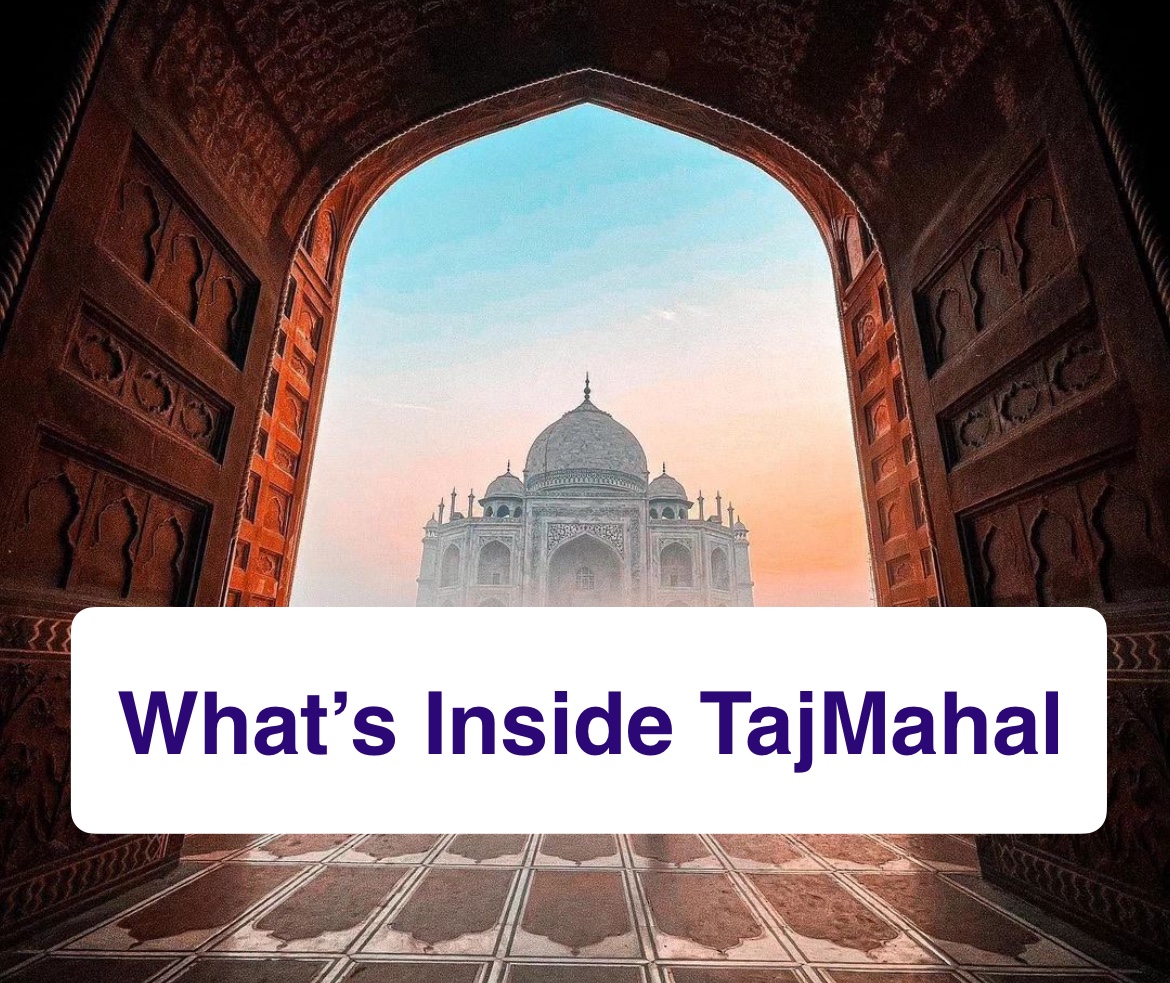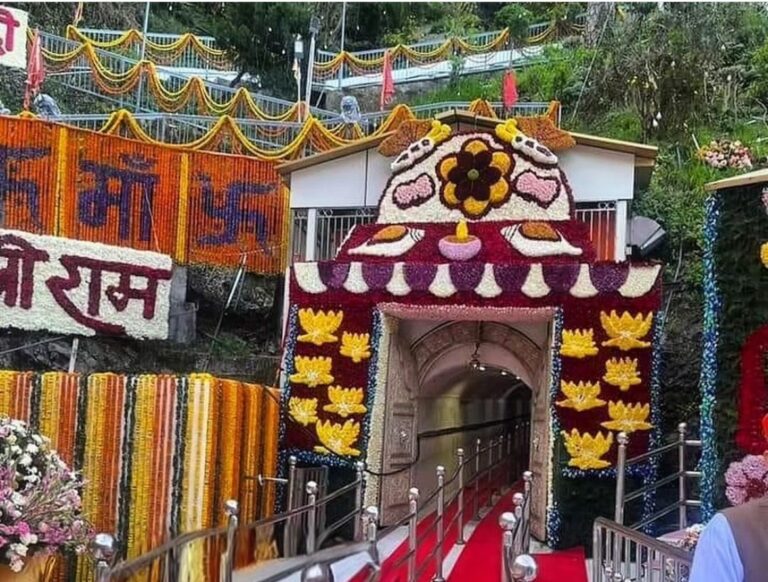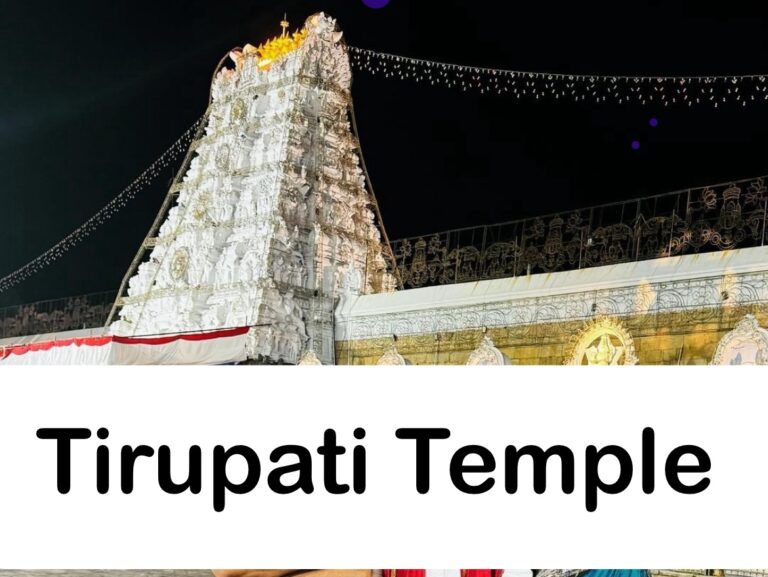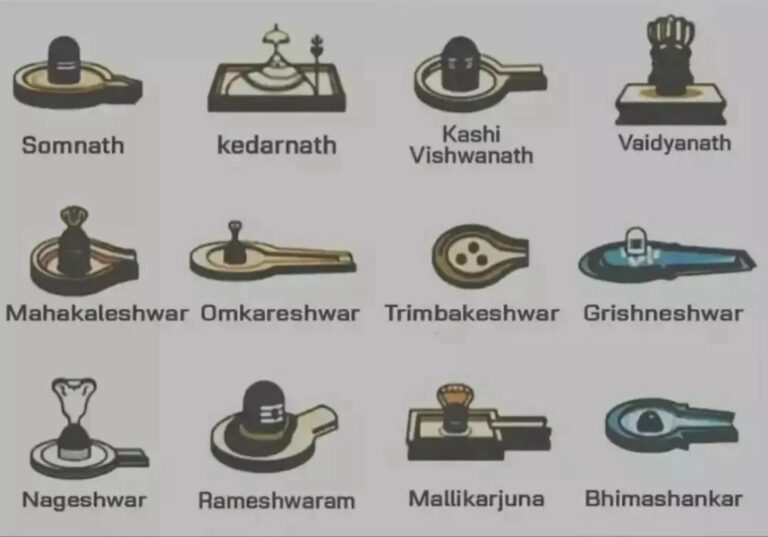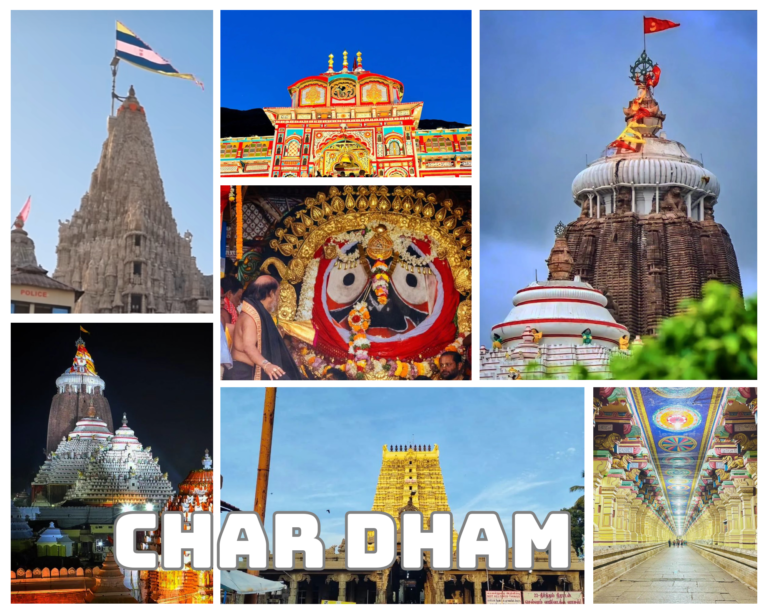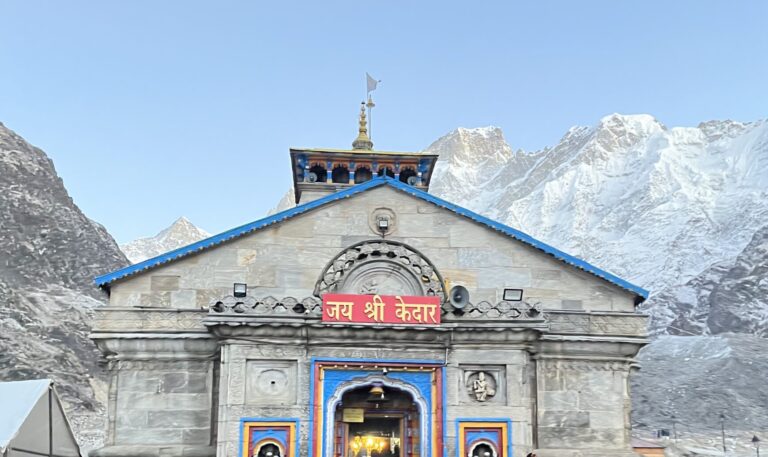What’s Inside the Taj Mahal? Unveiling the Secrets Inside Tajmahal
Introduction
The Taj Mahal, a timeless masterpiece, stands as a testament to love, grief, and architectural brilliance. Beyond its pristine white marble facade lies an enchanting interior that whispers tales of romance, devotion, and artistic mastery. In this blog, we look into what’s inside the Taj Mahal, exploring its hidden treasures and shedding light on what lies within those majestic walls.
What actually Present Inside Taj Mahal?
Body of Mumtaz
The Taj Mahal was commissioned by Emperor Shah Jahan in memory of his beloved wife, Mumtaz Mahal. Mumtaz Mahal’s body rests at the heart of the Taj Mahal, beneath the grand central dome. Her tomb, adorned with intricate carvings and semi-precious stones, reflects their eternal love.
Important fact about Mumtaz
Mumtaz, a Persian princess, was not only a queen but also an intelligent woman who mastered Arabic and Persian languages. Her modesty, intelligence, and unwavering love captured Shah Jahan’s heart.
What’s fascinating is that Mumtaz was his third wife, and she tragically died during the labor of their 14th child.Her labor lasted an excruciating thirty hours before she passed away.
Body of Shah Jahan
Beside Mumtaz Mahal lies Emperor Shah Jahan himself. His cenotaph mirrors hers, symbolizing their enduring bond. Shah Jahan’s other marriages were political alliances, but his love for Mumtaz Mahal remained unmatched. Their tomb is a present inside Taj Mahal which reminder of their eternal union.
While Mumtaz and Shah Jahan rest inside Taj Mahal, other family members find their eternal abode nearby.Shah Jahan’s other wives and even his favorite servant are buried just outside the mausoleum.
Two Empty Cenotaphs
Surprisingly, the inside Taj Mahal two additional cenotaphs—one on either side of the central chamber. These remain unadorned, representing Shah Jahan’s other wives. His devotion to Mumtaz sets her apart from the rest.
Inside Taj Mahal Walls Inlaid with Precious Stones
As we explore further, we encounter inside the walls of Taj Mahal which adorned with intricate inlays of semi-precious stones. Lapis lazuli, jasper, turquoise, and onyx create mesmerizing patterns. The craftsmanship reflects the mastery of Mughal artisans.
Floors Covered in Octagonal Stars
Look down, and you’ll find floors embellished with octagonal stars. These geometric patterns, formed by black marble inlaid in white, add to the Taj’s allure. Sunlight filtering through lattice screens casts enchanting shadows.
Let’s look into Taj Mahal was built by whom ? and it’s inside ?
The chief architect of the Taj Mahal was Ustad Ahmad Lahauri, a Persian.His expertise brought this masterpiece to life. The construction of the Taj Mahal began in 1632 and was completed in 1653.Even after the mausoleum was finished in 1642, work continued for another ten years, fine-tuning every detail.
Cost of Making of Taj Mahal
The Taj Mahal’s construction cost an estimated 32 million rupees at the time.In today’s currency, that’s equivalent to over a billion US Dollars or more than fifty billion Indian Rupees.
Conclusion
The Taj Mahal’s true beauty lies not only in its exterior grandeur but also in the secrets whispered by its walls. As you stand within its hallowed halls, you feel the weight of history—the love, grief, and enduring legacy of Shah Jahan and Mumtaz Mahal. Their story lives on, etched in every marble slab and precious stone.
In the end whether you see it as a romantic ode, an architectural masterpiece, or a spiritual beacon, the Taj Mahal leaves an indelible mark on all who encounter its splendor. What do you thing of majestic Taj Mahal, let me know in the comment section.
